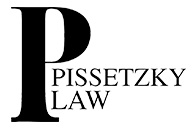
WE ARE ALWAYS IN YOUR CORNER
CRIMINAL DEFENSE
Chicago DUI Defense Attorneys
Aggressively Defending Against Drunk Driving Charges in IL
While DUI is a serious crime in any state, Illinois law is especially tough on drunk drivers. If you were arrested for driving under the influence of drugs or alcohol in Chicago or the surrounding area, securing a robust defense is essential to protect your untarnished reputation and avoid the life-changing penalties of a conviction.
From lengthy prison sentences to the permanent loss of driving privileges, the consequences of an aggravated DUI can be brutal. Fortunately, our award-winning lawyers are here to help you navigate the complex landscape of criminal court. At Pissetzky Law LLC, our DUI defense attorneys have over 20 years of experience and extensive knowledge of criminal law to provide the well-fortified defense you deserve, fighting fiercely to restore your freedom.
If you’re facing DUI charges, seeking a robust defense is critical to clear your name and defend your freedom. Contact us online to set up a confidential consultation.
What Constitutes “Driving Under the Influence”?
Driving under the influence of drugs or alcohol (DUI) is illegal under ILCS §11-501. Illinois law defines DUI as “operating a motor vehicle while impaired by alcohol, other drugs, including cannabis (marijuana) prescribed for medical purposes, or intoxicating compounds and methamphetamine.”
Illegal BAC Limits in Illinois
In a DUI stop, the driver’s blood-alcohol content (BAC) is the primary measure of whether or not the driver committed a DUI. This refers to the amount of alcohol in your bloodstream, which can be determined with a breath, blood, or urine sample. As of 2024, the BAC limits for DUI in Illinois include:
- Drivers under 21: Illinois has a zero-tolerance law for drivers under 21, meaning that any underage driver can be arrested and charged with a DUI if they have any alcohol in their system (e.g., any BAC above 0.0%).
- School bus drivers: Similarly to underage drivers, school bus drivers can face DUI charges if they operate school vehicles with any amount of alcohol in their blood (e.g., a BAC reading greater than 0.0%).
- Commercial driver’s license holders: The BAC limit for commercial vehicle drivers is 0.04%.
- Drivers who are 21 or older: The BAC limit for drivers of legal drinking age or older is 0.08%. Any higher BAC reading can result in a DUI arrest.
Is DUI a Felony or Misdemeanor in Illinois?
Under state law, DUI can be charged as either a felony or a misdemeanor depending on the unique circumstances. Influencing factors may include the driver’s age, any prior DUI convictions, the driver’s BAC level, and whether there was a minor child in the vehicle. A felony DUI is considered an aggravated DUI in Illinois. If the driver has prior convictions on their criminal record, DUI penalties can be enhanced significantly, making it all the more imperative to secure an experienced defense as soon as possible.
Criminal Penalties for a DUI Conviction
The penalties for a DUI conviction depend on various factors, such as whether the driver has prior convictions, the quantity of prior convictions, and whether the DUI offense is a felony or a misdemeanor. Generally, criminal penalties include:
First DUI Offense
If the DUI is the driver’s first offense, this is considered a Class A misdemeanor punishable by:
- Up to $2,500 in fines
- Suspension of vehicle registration
- 1-2 years of driver’s license revocation
- Possible imprisonment for up to 1 year
Additional penalties may also apply in certain circumstances. For example, if the driver’s BAC was 0.16% or higher, they can also face an additional $500 in fines and 100 hours of community service. If the driver was transporting a child under 16 years old, the offense is punishable by up to 6 months of imprisonment, at least 25 days of community service in a program benefitting children, and an additional $1,000 in fines.
Second DUI Offense
Second-time DUI offenders are guilty of a Class A misdemeanor punishable by:
- Up to $2,500 in fines
- Suspension of vehicle registration
- Possible imprisonment for up to 1 year
- 5 days to 240 hours of community service
- Revocation of driving privileges for at least 5 years if the second conviction occurred within 20 years of the first
If the driver’s BAC was 0.16% or higher, they can face additional penalties, including:
- An additional $1,250 in fines
- Mandatory imprisonment for at least 2 days
Third DUI Offense (Aggravated DUI)
Third-time DUI offenders are guilty of a Class 2 felony punishable by:
- Up to $25,000 in fines
- Suspension of vehicle registration
- Possible imprisonment for 3-7 years
- Revocation of driving privileges for a minimum of 10 years
If the driver’s BAC was 0.16% or higher, the offender can face additional penalties, including:
- An additional $2,500 in fines
- Mandatory imprisonment for 90 days
If the driver were transporting a child under the age of 16 when they committed the offense, additional penalties may include:
- Up to $25,000 in fines
- Possible imprisonment of 1-3 years
- 25 days of community service in a program benefitting children
Fourth DUI Offense (Aggravated DUI)
Drivers who commit a fourth DUI offense are also guilty of a Class 4 felony punishable by:
- Suspension of vehicle registration
- Revocation of driving privileges for life
If the driver committed the DUI with a BAC of 0.16% or higher, additional penalties include a minimum of $5,000 in fines.
If the driver was transporting a child under the age of 16, additional penalties include at least $25,000 in fines and 25 days of community service in a program benefitting children.
What Constitutes an Aggravated DUI?
Any DUI resulting in felony charges is considered an aggravated DUI punishable by enhanced penalties. This applies to:
- Third or subsequent DUI offenders (Class 2 felony)
- DUI by school bus drivers transporting one or more passengers 18 or under (Class 4 felony)
- DUI by for-hire vehicle drivers carrying one or more passengers (Class 4 felony)
- DUI resulting in great bodily harm, permanent disability, or disfigurement (Class 4 felony)
- Second or subsequent DUI while transporting a child under the age of 16 (Class 2 felony)
- Any DUI committed while transporting a child under the age of 16 that results in a crash or causes great bodily harm to the child (Class 2 felony)
- DUI committed without a valid license or permit (Class 4 felony)
- DUI committed without vehicle liability insurance (Class 4 felony)
- DUI committed after a previous conviction for reckless homicide involving death (Class 3 felony)
- DUI committed in a school zone that results in bodily harm (Class 4 felony)
- DUI resulting in death (Class 2 felony)
Do I Have to Consent to Chemical Testing in a DUI Stop?
In Illinois, drivers are subject to the “implied consent” law, which means that by operating a motor vehicle, drivers automatically consent to submit to chemical testing (breath, blood, or urine) for the purpose of determining their blood alcohol content (BAC) or the presence of drugs. Refusal to submit to chemical testing when requested by law enforcement can result in significant penalties independent of the outcome of any DUI charges, including the automatic suspension of driving privileges.
Consenting to Field Sobriety Tests
Unlike the “implied consent” law for chemical testing, agreeing to field sobriety tests in a DUI stop is different. Field sobriety tests, such as the walk-and-turn test, the one-leg stand test, and the horizontal gaze nystagmus test, can be refused without statutory penalties. However, this doesn't mean that refusing field sobriety tests lacks legal implications. While you won’t face automatic license suspension for refusing a field sobriety test, dissenting can still be used as evidence against you in criminal court, as the prosecution can use your refusal to suggest that you were aware of your impairment at the time of the DUI.
Remember, navigating the legal intricacies of field sobriety tests and chemical testing can be complex. Consulting with a qualified DUI defense lawyer can offer crucial guidance on how to proceed when faced with these decisions during a DUI traffic stop.
Contact Our Skilled Chicago Defense Lawyers Today
At Pissetzky Law LLC, we understand how overwhelming it can be to face DUI charges. Whether you’re facing charges as a first-time DUI offender or hoping to avoid the enhanced penalties of a subsequent conviction, our Chicago defense attorneys can zealously defend your rights and hard-earned reputation while guiding your steps wisely in criminal court. No matter the type or severity of the charges against you, our firm can work tirelessly to dismiss or reduce the criminal charges you’re facing.
If you were arrested for a DUI in Chicago, securing an experienced defense is crucial to avoid life-altering penalties. Call (844) 668-4258 to schedule a consultation with our seasoned defense attorneys.
We Can Help You

Local & National Media Attention
Contact Us
Feeling a Spark? Contact us today to speak to a member of our team.
We are the leaders in the electrical industry in our community. We power the fun at our local casinos but we also power your home. Big or small, no matter where you are, we can light things up.


